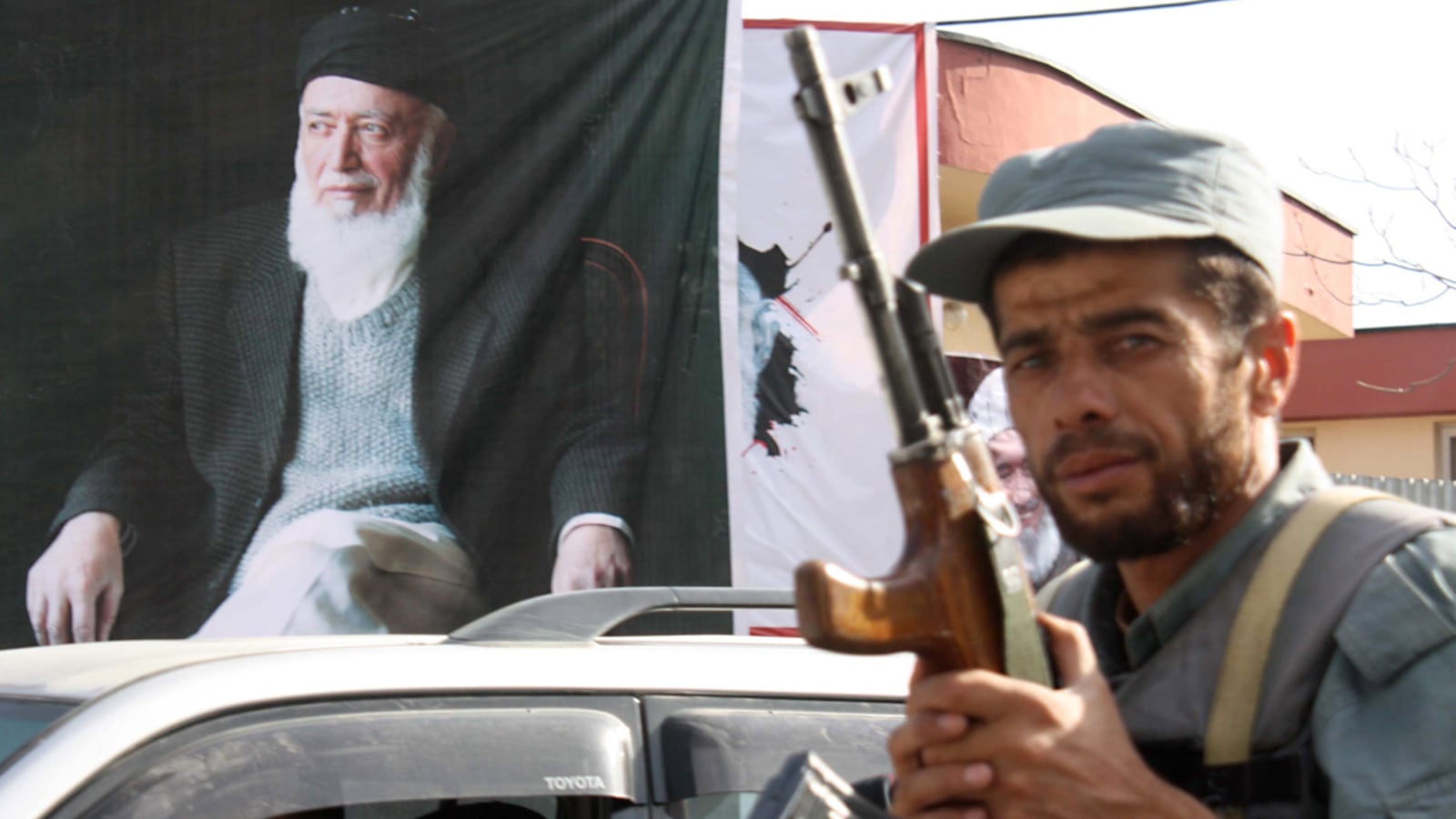Anyone who thought that peace talks with the Taliban were on the verge of success was ignoring what the Taliban have continued to say about their own agenda and their own ideology, which has not softened in the least over the years. Anyone in the U.S. or Afghan governments who considered reconciliation negotiations the core of a political strategy for Afghanistan, as Secretary of State Clinton’s spring testimony incorrectly suggested, was placing emphasis on the wrong thing.
The tragic death of former president and head of the High Peace Council Burhanuddin Rabbani, in a country that has had far too much killing already, is sad news for Afghanistan. And the insurgency’s ability to assassinate stokes fear and unease among all Afghans, which is not good for a country trying to make a peace of the brave within its borders.
That said, we risk mourning too much, at least in political terms. If we are to learn from history, first of all, the last person whom the Taliban would have considered to begin the reconciliation process with would have been Rabbani. He tried hard, to be sure. But Rabbani was one of the mujahedin leaders who fought against the Taliban to the end as a member of the Northern Alliance Front. Also, his earlier tenure as president of Afghanistan calls into doubt his ability to bring peace. It was during Rabbani’s presidency that Kabul was destroyed by different factions of mujahedin and Afghans.
To achieve peace, it is true that Afghanistan does need greater help from Pakistan, which continues to harbor, if not aid and abet, elements of the insurgency. The Taliban are too hardline to change their stripes without such pressure being applied from the country providing their sanctuary. But too much focus on the peace process is a distraction from or avoidance of the real work of rebuilding Afghanistan, including its economy and its politics.

Afghanistan’s future prospects for peace will come more from within than from a grand peace deal. Part of this requires healing and psychological recovery among Afghans, and a greater sense of confidence for the future. A transitional justice process is a critical part of any such effort. And part of the answer has to come from politics. Not the equivalent of a secretly negotiated Kissinger-like armistice between President Karzai and Mullah Omar, but a stronger and more representative Afghan domestic politics.
Today Parliament is too weak. Karzai, despite his many personal strengths, has become too strong, largely due to the impact of the international community in according him too many powers in the Constitution, which outsiders helped write. With the constitutional requirement that he step down in 2014, Afghanistan’s lack of strong political parties stokes worry among citizens about who can replace Karzai and what succession process can really be fair, democratic, and unifying for the country rather than divisive. Afghanistan’s only real hope is to create the kinds of domestic political institutions and democratic systems that make politics about ideas and visions for the country rather than patronage or ethnicity—or implausible promises about a grand peace with the nation’s sworn enemies.
Afghanistan has many good leaders, and the international community as well as Afghan citizens themselves need to start working to build up these leaders, and the movements and parties around them, rather than to rely exclusively on any one person or president, however gifted he may be, or on the shallow promise of a peace process that is far from ripe.
The action agenda that results from this perspective includes everything from providing greater moral, technical, and financial support for Afghanistan’s fledgling political parties, to encouraging ways for Parliament to have more of a say in the nation’s governance (such as allowing it to propose more legislation rather than just react to the president), to having visiting members of the U.S. Congress and U.S. governors visit parliamentarians and Afghan governors rather than just President Karzai and his inner circle when on visits.
It is true that Afghanistan needs a political solution, not just a military solution, to its war. But elections do not create effective democracies automatically. And encouraging peace talks with hardline extremists, while sensible on one level, is a Hail Mary strategy at best.
Helping Afghanistan recover and move ahead remains a slog, and our hope for instant solutions is dangerous. The next three years of building up Afghan institutions and preparing for transitions—in the security realm and the political realm—are going to take all the hard work and staying power we can muster.







